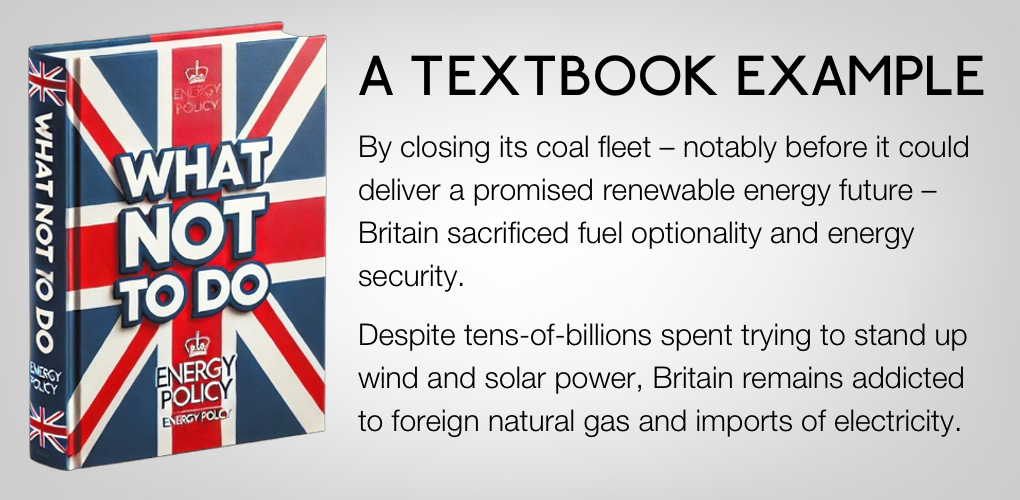
Congrats on… the Energy Poverty
In October, Britain will close its last coal plant marking the culmination of a decade-long policy that has proven to be a catastrophe for British consumers.
While some headlines have celebrated Britain’s phaseout, the cost – still to be fully tallied – has been extraordinary. If anything, Britain’s energy policies have become textbook case studies of exactly what not to do if energy affordability, security and economic competitiveness are desired outcomes.
Britain’s pivot away from fuel-secure, existing coal has meant an embrace of notoriously volatile European gas markets dominated by Vladimir Putin. It has been a colossal mistake that left British consumers extraordinarily vulnerable during the energy crisis that followed Russia’s invasion of Ukraine and a pivot towards eye-wateringly high electricity prices that simply would not be tolerated in the U.S.
Energy prices have become a lead balloon on Britain’s economy and a crisis for working people and retirees on fixed incomes. In the second half of 2023, Britain’s electricity prices were higher than those in any E.U. country – a remarkable achievement when one considers the competition.
Electricity prices in the U.K. fully doubled between 2010 and 2024. They are in fact so high, they’re 175% higher than the average price for electricity in the U.S. And in October, they are going to jump another 10%.
Britain’s Office of Gas and Electricity Markets, or Ofgem, has announced that the already highly subsidized price cap for British households will have to go up again this winter. This comes when households in arrears on their energy bills are already at a record. Nearly one million households are behind on their power bills with no arrangement to repay, and 748,000 face similar problems with their gas bills.
“At the mercy of international gas markets controlled by dictators”
Britain’s Secretary of State for Energy Security and Net Zero, Ed Miliband, said of the coming price increase: “This will be deeply worrying news for many families. The rise in the price cap is a direct result of the failed energy policy we inherited, which has left our country at the mercy of international gas markets controlled by dictators.”
By closing its coal fleet – notably before it could deliver a promised renewable energy future – Britain sacrificed fuel optionality and energy security. Despite tens-of-billions spent trying to stand up wind and solar power, Britain remains addicted to foreign natural gas and imports of electricity.
In the second quarter of 2024, fully 20% of British power needs were met with imports, a volume of power double that produced by domestic wind and solar combined. Imports are now costing British ratepayers a staggering £250 million a month, equivalent to $327 million a month. That’s money bleeding out of the British economy that could otherwise have stayed home.
Britain has dug itself a remarkably deep hole and there’s no easy way out. In fact, as electrification accelerates, Britain’s leading utility expects power demand to double by 2050. A constrained supply of power and surging demand hardly sounds like a recipe for lower prices and increased energy security.
But, by all means, cracking good work on closing those coal plants.
- On September 11, 2024
